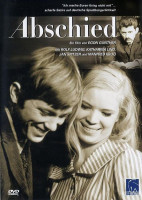Abschied Filming Locations

Where was Abschied filmed? Abschied was filmed in 6 locations across Germany in the following places:
Abschied Filming Locations
Berlin, Germany’s capital, dates to the 13th century. Reminders of the city's turbulent 20th-century history include its Holocaust memorial and the Berlin Wall's graffitied remains. Divided during the Cold War, its 18th-century Brandenburg Gate has become a symbol of reunification. The city's also known for its art scene and modern landmarks like the gold-colored, swoop-roofed Berliner Philharmonie, built in 1963.
Dresden is the capital city of the German state of Saxony and its second most populous city after Leipzig. It is the 12th most populous city of Germany, the fourth largest by area, and the third most populous city in the area of former East Germany, after Berlin and Leipzig.
Leipzig is the most populous city in the German state of Saxony. The city has a population of 628,718 inhabitants as of 2023. It is the eighth-largest city in Germany and is part of the Central German Metropolitan Region.
Munich, Bavaria’s capital, is home to centuries-old buildings and numerous museums. The city is known for its annual Oktoberfest celebration and its beer halls, including the famed Hofbräuhaus, founded in 1589. In the Altstadt (Old Town), central Marienplatz square contains landmarks such as Neo-Gothic Neues Rathaus (town hall), with a popular glockenspiel show that chimes and reenacts stories from the 16th century.
Potsdam is a city on the border of Berlin, Germany. Sanssouci Palace was once the summer home of Frederick the Great, former King of Prussia. On the grounds of the complex, the Renaissance Orangery Palace overlooks Italian-style gardens with fountains. Historic Mill offers city views. English gardens surround neoclassical Charlottenhof Palace. The 19th-century Roman Baths were built in several architectural styles.
Abschied (1968)
In August 1914, amidst the public ecstasy surrounding the impending war, Hans Gastl, the seventeen year-old son of a Munich bürger, makes a decision: he will not take part in this war. This resolution signifies a turning point in his life; a farewell to his class and his family. His notions of "transformation" are still nebulous, but are nevertheless linked with a sensible life in a just society. The resolution does not come spontaneously: since he was a child, Gastl, the son of a senior public prosecutor, has rebelled against the decadence and mere appearance of morality in his parent's household. In relating to his schoolmates Feck and Freyschlag, he was constantly torn between admiring their courage and abhorring their evil pranks. He thinks about his friendship with Löwenstein, who is a Jew, and Hartinger, the boy from the working class, and about his tragically ending love for the prostitute Fanny.
